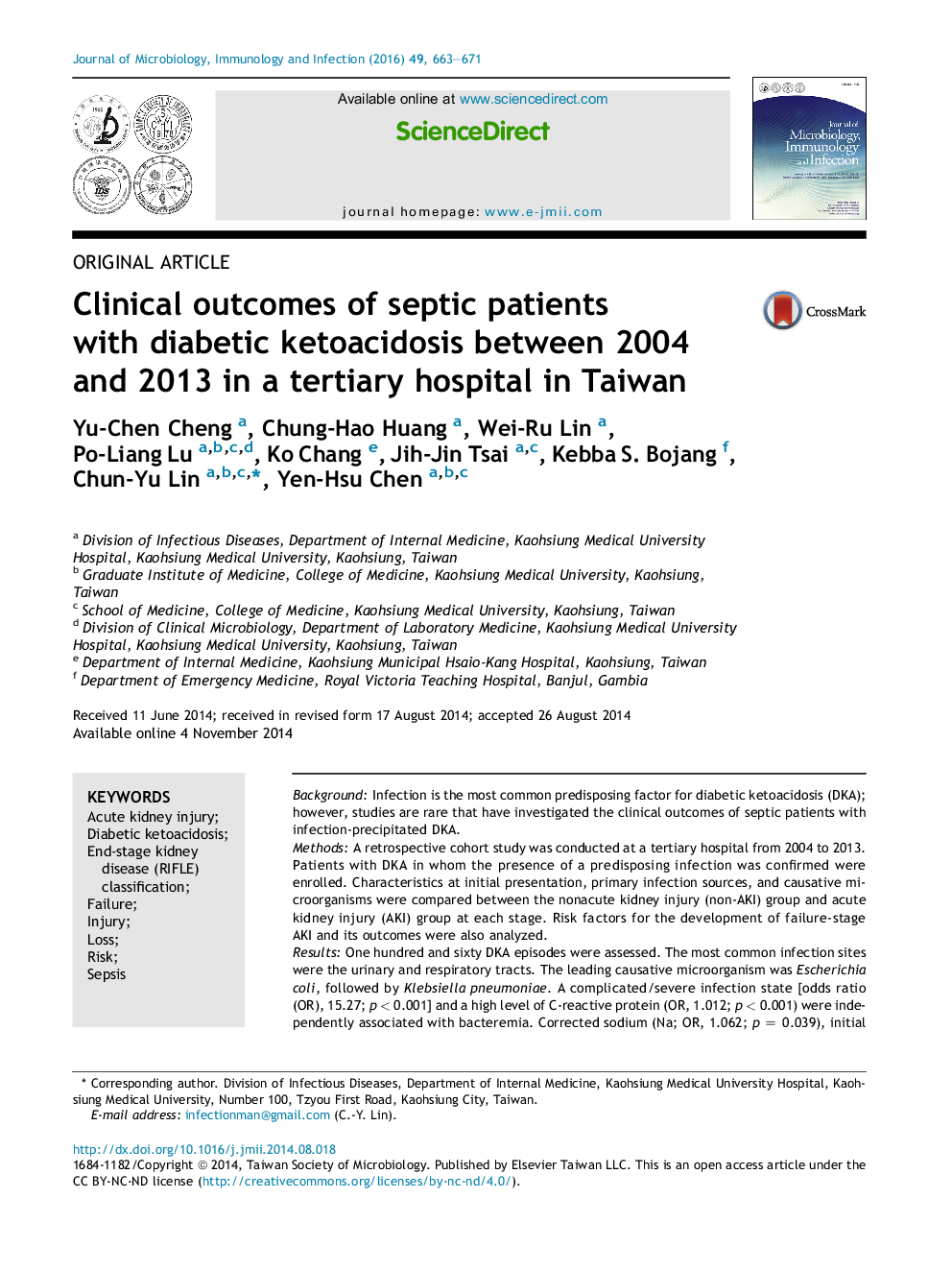| کد مقاله | کد نشریه | سال انتشار | مقاله انگلیسی | نسخه تمام متن |
|---|---|---|---|---|
| 5669068 | 1407937 | 2016 | 9 صفحه PDF | دانلود رایگان |
BackgroundInfection is the most common predisposing factor for diabetic ketoacidosis (DKA); however, studies are rare that have investigated the clinical outcomes of septic patients with infection-precipitated DKA.MethodsA retrospective cohort study was conducted at a tertiary hospital from 2004 to 2013. Patients with DKA in whom the presence of a predisposing infection was confirmed were enrolled. Characteristics at initial presentation, primary infection sources, and causative microorganisms were compared between the nonacute kidney injury (non-AKI) group and acute kidney injury (AKI) group at each stage. Risk factors for the development of failure-stage AKI and its outcomes were also analyzed.ResultsOne hundred and sixty DKA episodes were assessed. The most common infection sites were the urinary and respiratory tracts. The leading causative microorganism was Escherichia coli, followed by Klebsiella pneumoniae. A complicated/severe infection state [odds ratio (OR), 15.27; p < 0.001] and a high level of C-reactive protein (OR, 1.012; p < 0.001) were independently associated with bacteremia. Corrected sodium (Na; OR, 1.062; p = 0.039), initial plasma glucose (OR, 1.003; p = 0.041), severe grade of DKA (OR, 13.41; p = 0.045), and the Acute Physiology and Chronic Health Evaluation (APACHE) II score (OR, 1.08; p = 0.033) were identified as independent risk factors for the development of failure-stage AKI among septic patients with infection-precipitated DKA. Patients with failure-stage AKI had a higher frequency of incomplete recovery of renal function (20.4% of patients in failure vs. 5.9% of patients in risk and injury, p = 0.009). Bacteremia independently predicted the absence of complete recovery of renal function (OR, 5.86; p = 0.038).ConclusionFor patients with infection-precipitated DKA, the clinician should aggressively monitor renal function if a patient presents with risk factors associated with failure-stage AKI. Furthermore, bacteremia predicts a poor renal prognosis.
Journal: Journal of Microbiology, Immunology and Infection - Volume 49, Issue 5, October 2016, Pages 663-671
